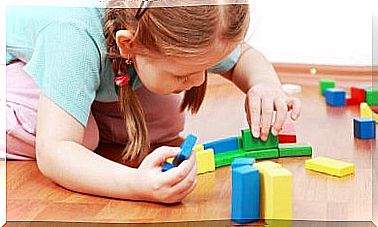What To Do When A Child Is Constantly Shouting?

Are you exhausted and helpless because your child is constantly screaming and you can’t control his behavior? Shouting can become a habit for a child that understandably tests the patience of parents.
Even if there is constant tension in your home because of a child shouting, don’t worry too much, as this is a very common situation that many families face. At the root of the problem is often the fact that shouting in the early years of life forms a formula for the child that he constantly repeats. Then his feelings are at their strongest and most powerful.
However, every parent of a child who cries a lot will certainly be willing to know what to do to end the child’s bad behavior. Below, we explain how parents should react when a child is constantly shouting, and how to stop such behavior.
Why does the child keep shouting?
To better understand the situation and control the child’s use, we will explain the most common reasons a child is constantly shouting.
A child is a child
By this we mean that a child is a very active creature who spends his days in various games and games, exploring his surroundings and at the same time making a lot of noise.
Shouting and screaming can be natural ways for a child to communicate with other people, and this often happens especially when the child is small with other children.
For a child to find something new every day, shouting can also be related to the fact that he often experiences joy and expresses it in this way.
The child imitates his parents or other loved ones
Children can sometimes shout because they mimic the way they perceive communication at home. Remember that parents teach children by their own example in just about every aspect of life – if you talk loudly at home yourself, your children will emulate this.

The child needs attention
A child can sometimes try to get the attention of the person he or she is with, and for this he or she may use shouting. The youngest children have a great need to be heard.
It often happens that if a child feels that he or she is not being listened to or pushed aside, he or she starts shouting to get others to notice themselves.
The child tries to express his feelings
Shouting at a child can be a reaction to uncomfortable situations such as frustration, jealousy, stress, and even tension.
Because of their age, a child is unable to control the energy associated with these emotions as well as an adult. So he chooses to let go of his feelings by shouting.

A certain stage of development involves shouting
At the age of 2-3, it is normal for a child to have outbursts of anger, and he or she then opposes parental control.
The child has difficulty learning the language
If a child has some type of speech defect, this may be manifested through shouting. Then he shouts because he wants to express his feelings.
The child has hearing problems
Hearing problems, such as inflammation of the eardrum or other health problems, prevent the child from hearing his or her own speech well. In that case, he has to speak louder to hear himself properly.
What to do when a child is constantly shouting?
Once you’ve figured out the reason why your own child screams very often, the next step is to figure out the ways to stop this behavior. Above all, however, it is important to remember this advice: try to be patient with the situation, as this is the only way to make your little one calm down faster.
Low your voice as you speak to the child
Make the effort to be able to analyze your own behavior and find out if it is normal in your home for other people to shout as well. If you find this to be the case, try to change your own tone of voice when talking to other family members, for example, on the phone or at home.
Avoid behaving in the belief that a person’s message will come in a clearer and stiffer understanding if it is given with a cry.
Do not give up when a child is teased
When your child yells at you, do everything you can to avoid answering him in the same way. In fact, when a child is spoken to in a lower voice, he often does the same, and thus the adult also becomes better heard.
However, it is very important to stay firm and set rules so that you do not give up when your child is teased. For example, it would be good to make it clear to children that when they shout, you will not be able to hear them properly. If this is not made clear, the child realizes that he or she will be able to get everything he or she wants if he or she is teased.
Wait for the child to calm down
As all parents know, there can be no sensible conversation with a child when he or she is in the power of some very strong emotion, such as rage. So be empathetic and listen to him as he calms down. Let him express himself then without interrupting.
In addition, the child should be taught to listen, and this can be achieved through reading. One idea is to take him from time to time to places where it is necessary to be quiet – for example, the library is a great educational resource in this sense as well.
Contact a speech therapist

Talk to your child’s teacher so you can find out if your little one has a habit of shouting at school as well. If the teacher says the problem also affects the school, the parent should definitely contact a speech therapist. Such a professional is able to help the child lower the volume of his speech, which is done with the help of special exercises designed for this purpose.
In short, shouting at a child is fortunately a problem that can be addressed – and so the emotional storm and discomfort that always accompanies a cry is also brought to an end. Just follow these basic tips and keep in mind that the most important thing is the example your child gets in your home – it’s key to both shouting and many other aspects of your child’s behavior.









